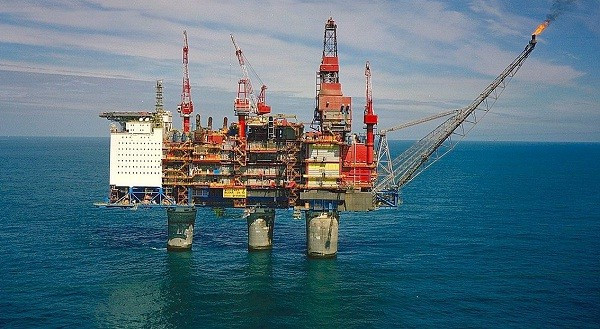Cameron and Salmond Clash Over Oil as Scottish Independence Campaign Heats Up

Just five miles separated David Cameron and Scotland's first minister, Alex Salmond, when they took their cabinets to Aberdeen. And it is probably the closest they will get to each other in the remaining seven months of the increasingly bitter battle over independence.
There was the faintly ludicrous sight of the two men using the megaphone of the media to shout at each other when a short taxi ride would have allowed them to meet to thrash out the issues face-to-face.
So voters heard Cameron promising to continue using the UK's "broad shoulders" to ensure jobs and investment in North Sea oil, and ministers unveiling a multi-million pound carbon capture project in neighbouring Peterhead.
Meanwhile, Salmond accused Cameron of parachuting his cabinet into Scotland, the first visit since 1921, to deliver threats and bribes "from on high", and insisting only independence could provide proper stability for the industry.
He also repeated his now routine and ultimately futile call for a televised debate with the prime minister. It will not happen for the simple reason that Cameron is painfully aware of just how toxic the Tories, and an Eton-educated English prime minister are north of the border.
Yet he is also sensitive to the fact that, having thrown his full weight behind the "no" to independence campaign, he cannot appear to be running away from the fight.
In the end, however, none of this might matters. Opinion polls consistently suggest the nationalists are set to lose the referendum in September, so Cameron's task is to ensure he does nothing to reverse that.
Over the past weeks, he has wheeled out some big guns to try and blow huge holes in the separatists' case and on Monday it was the turn of North Sea oil, the jewel in the country's economic crown.
The prime minister's case is simply that only a UK government would be able to offer the sort of investment needed by the industry to extract remaining reserves and manage the future of the industry.
Salmond, however, claims the Westminster government cannot be relied upon to offer the sort of stability needed to secure the industry's future and again accused Cameron of laying down edicts from on high in a campaign of fear.
And it is this emotional element of the campaign that is particularly difficult for Cameron and the Tories to counter. They know there is a nationalist sentiment in Scotland that might only be strengthened by signs of interference from Westminster.

But the government has calculated that heads will ultimately defeat hearts and a powerful campaign aimed at the central planks of the separatists' case will persuade the majority to stick with the security of the union.
So the first line of attack was for Cameron and chancellor George Osborne to lead all three Westminster parties in telling Salmond that Scotland would not be allowed to enter a currency union with the rest of the UK if it broke away.
Then, with the unforeseen help of European Commission president Jose Manuel Barroso, Cameron insisted an independent Scotland would not automatically be allowed to join the EU.
And there were some signs the campaign was having an effect. One opinion poll for the local Aberdeen paper, the Press and Journal, suggested 65% would vote 'no' compared to just 17% supporting separation. While that was being dismissed as a rogue, an ICM poll for the Scotland on Sunday newspaper showed a 5% increase in the 'no' vote to 49% with the 'yes' vote stalled at 37%.
These latest surveys buck the recent, and predicted trend of a narrowing gap as the referendum grows closer and may indicate the campaign is having an effect and Salmond is failing to defeat Cameron's "scare stories".
Cameron's delicate task is to keep up the attacks on the core elements of Salmond's case in the hope voters will believe his appeals in their heads, while not encouraging their anti-Tory hearts to hold sway.
© Copyright IBTimes 2025. All rights reserved.






















